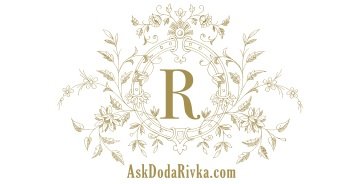triggeerred…
How to Be Happy When Life Feels Unhappy
How do you stay happy when every day brings a long list of things that make you unhappy?
Say you wake up rested and content—if you’re lucky. But it doesn’t take long before something disrupts your peace: the stench in the bathroom, the mess in the kitchen, or someone in the house having a meltdown—real or imagined. All this before your first cup of coffee.
As a therapist, I spend my days caring, counseling, and commiserating with people facing real and serious struggles.
A new husband tells me, “My wife is a ticking time bomb. I walk on eggshells all day. I never know when she’ll explode. I’m not trained for this!”
A wife confides, “My husband worries constantly about money. Every day he tells me we’re going to run out. I can’t live like this.”
A parent cries, “I don’t even recognize my child anymore. What qualifies me to be a parent? I quit!”
And a child, though not in these exact words, pleads, “Everyone’s better than me. Nobody likes me. I’m a loser.”
Single people say, “Why get married? Married people are miserable.” Married people say, “Nothing makes my spouse happy.”
Rich people need real friends and good health. Poor people need money and everything else. Everyone, it seems, has a long list of lacks—an abundance of unmet needs.
And then the Torah tells us:
“Serve HaShem with joy!”
Really? Be happy and serve G-d? Is that a joke? How are we supposed to do that when we’re surrounded by walking triggers, overflowing to-do lists, and challenges that feel insurmountable?
We’re told, “Don’t worry, be happy,” or, more poetically, “Have an attitude of gratitude.”
But how?
The Shift: From Needy to Needed
The answer lies in a profound truth:
We are needed—not needy.
Chassidus reveals an astounding idea—one that can free humanity from its deepest pains and even neuroses.
In Lashon HaKodesh, it is expressed as:
“Ani lo nivrei’see ela l’shammes es koni” — I was not created except to serve my Creator.
But why the inverted phrasing? Why not say, “I exist to serve my Creator”?
The Rebbe explains: The verse first clarifies what I am not.
“Ani lo nivrei’see”—I did not ask to be created. Meaning: Don’t create me and I won’t complain. I don’t need to exist.
So then—why was I created?
“L’shammes l’koni” — Because I am needed.
This is the ultimate truth of the human psyche:
We exist not because we need, but because we are needed.
Understanding Needs
Our so-called “needs” — food, sleep, air — are not truly ours. They are part of G-d’s design, His needs for His creation.
Think about it: If you could create yourself, would you design yourself to need to eat, sleep, shower, and age? Would you choose your looks, your birthplace, your parents? Of course not. These are G-d’s needs for us, not our own requests.
So our only real question is:
What does He need me for?
That is the key to happiness.
The Freedom of Service
When you realize that life’s purpose is service—not self-fulfillment—you become free.
Most people say:
“I’d love to help you, but I’ve got my own problems. Once I solve mine, maybe then I can help others.”
But if you go deep enough inside yourself, you’ll find that you truly need nothing. Not even existence itself. Beneath every layer of want is a soul that simply is—content in serving its Source.
Existence, with all its demands, is exhausting. But when you reach the awareness that “I am needed,” life transforms from burden to mission.
Meaning Over Survival
Those who survived the concentration camps did not survive because they needed to live. They survived because they found meaning.
Viktor Frankl built an entire school of psychology on this truth:
“He who has a ‘why’ to live can bear almost any ‘how.’”
When life’s purpose is clear—when you know Who needs you and why—you can withstand anything.
In Summary
“I am needed.” Not “I have needs.”
Know your purpose. Know Who needs you.
When you understand that you were created only to serve HaShem—and to bring light, love, and help to those in your life—you can be happy, even amid chaos. From that place of inner joy, you serve HaShem naturally and wholeheartedly.
Thank You, HaShem, for the Torah—without which we’d all be a mess.
